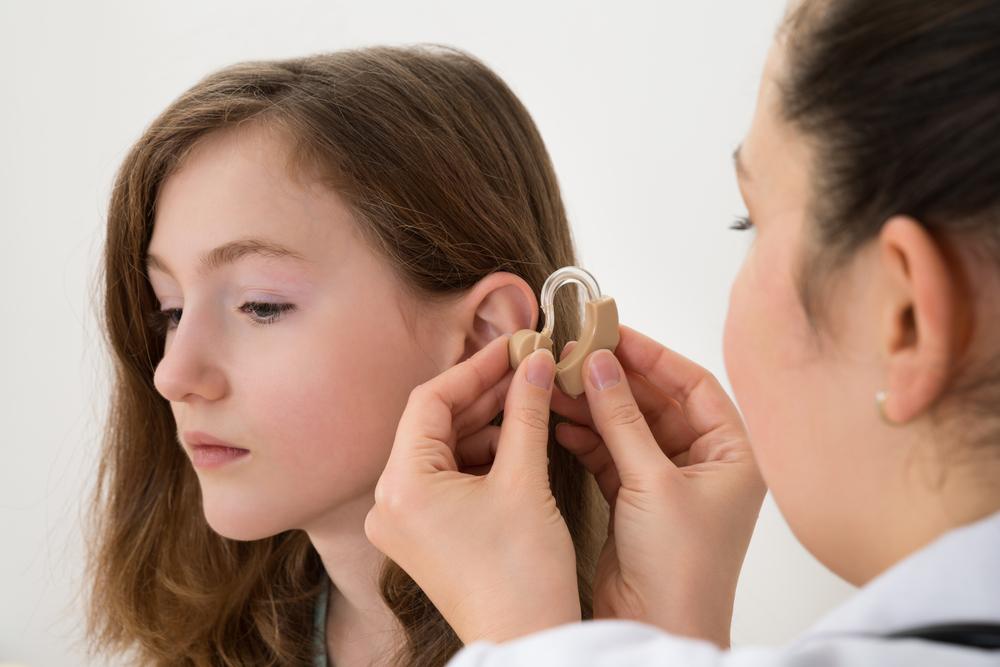Comprehensive Guide to Ear Health and How to Choose the Best ENT Specialist
This comprehensive guide covers the importance of regular ear health care and offers practical tips for selecting a top ENT specialist. It emphasizes early diagnosis and treatment to prevent serious long-term issues like hearing loss and ear infections. The article also highlights symptoms signaling urgent need for specialist consultation and provides advice on choosing trusted doctors, including considerations like credentials, experience, and telehealth options. Maintaining ear health is vital for overall well-being, and proactive care can significantly enhance quality of life. Read more to understand how to protect your hearing and find the best ENT professional.

Advantages of Consulting Ear Specialists and Tips for Selecting the Right Healthcare Provider
Ear health is a critical aspect of overall well-being, often overlooked until problems arise. Hearing issues can be early indicators of aging, but they can also stem from various causes such as ear infections, persistent exposures to loud noises, or underlying health conditions like diabetes or hypertension. Regardless of age, experiencing ear problems shouldn't be ignored, as untreated issues may lead to significant health complications and a decreased quality of life. Visiting an otolaryngologist, more commonly known as an ENT (ear, nose, and throat) specialist, is essential for accurate diagnosis and effective treatment of ear-related health concerns. Regular check-ups with an ENT can help detect problems early, prevent worsening symptoms, and maintain optimal hearing health.
The Benefits of Routine Ear Examinations
Regular ear assessments play an important role in maintaining ear health. They allow for early identification of potential issues, which can be crucial for successful treatment outcomes. Many ear conditions are asymptomatic in their initial stages, making routine check-ups the best proactive approach to ensuring lifelong hearing health. An ENT specialist has the expertise and specialized tools needed to detect subtle changes within the ear structures, enabling intervention before the problem becomes severe.
Understanding the Causes of Hearing Loss
Hearing loss might often be associated with aging, but other factors significantly contribute to auditory decline. Chronic conditions like diabetes and high blood pressure can impair blood flow to the ears, exacerbating hearing deterioration. Other common causative factors include exposure to loud noises, ear infections, trauma, or genetic predisposition. An experienced ENT physician conducts comprehensive evaluations to determine the root cause of hearing impairment, which is essential for devising a personalized treatment plan that can often include medication, hearing aids, or surgical intervention.
Preventing Long-Term Ear Complications
Losing hearing ability not only hampers communication but can also impact mental health, leading to social withdrawal, depression, and anxiety. Regular visits to an ENT specialist help in developing effective, minimally invasive treatment strategies that can prevent long-term damage to the ear structures. Early intervention preserves hearing function and improves overall neurological health, which is vital for maintaining social interactions and day-to-day activities.
Achieving Accurate Diagnosis and Tailored Treatment Plans
General practitioners often lack the advanced diagnostic tools required for identifying specific ear conditions. ENT doctors, however, have access to specialized equipment and conduct comprehensive assessments, including audiometry tests, tympanometry, and imaging studies. This thorough approach ensures accurate diagnosis of ear disorders, whether it's an inner ear infection, structural defect, or auditory nerve issue. Consequently, patients receive targeted treatments that increase the likelihood of successful outcomes and restore normal ear function.
When Should You See an Ear Specialist?
Recognizing early symptoms of ear problems is crucial for prompt treatment. Here are common signs indicating the need for urgent evaluation by an ENT expert:
Hearing Loss or Diminished Hearing Ability
If you notice difficulty understanding speech, needing to turn up volume on devices, or experiencing sudden or gradual hearing decline, seek professional assessment. Early intervention can often reverse mild cases and prevent progression to permanent impairment.
Persistent Ear Pain or Discomfort
Pain, pressure, or a sensation of fullness in the ears may be due to infections, fluid buildup, or other medical conditions that require immediate attention.
Difficulty Detecting Sound Direction or Tracking
Challenges in locating the origin of sounds or following conversations are symptoms of potential auditory nerve issues or inner ear problems, warranting specialized testing.
Ongoing Hearing Fatigue
Feeling excessively tired after listening or concentrating on auditory stimuli can be a sign of underlying auditory processing issues that need evaluation.
Additional warning signs include ringing in the ears (tinnitus), ear discharge, persistent dizziness, or imbalance—all of which should prompt a consultation with an ENT specialist promptly.
Choosing a Reliable Ear Specialist: Tips and Considerations
Selecting the right ENT physician is fundamental for effective treatment and patient satisfaction. Here are strategic tips to find a trusted and qualified ear specialist:
Seek Personal Recommendations
Asking friends, family members, or your primary healthcare provider for referrals can be a great starting point. Personal experiences often provide insights into a physician’s expertise, bedside manner, and success rate.
Verify Credentials and Experience
Use reputable online directories or medical boards to check the credentials, certifications, and clinical experience of potential ENT specialists. Prioritize doctors with extensive experience in diagnosing and treating ear disorders to ensure high-quality care.
Evaluate Compatibility and Comfort
Choosing a physician you feel comfortable communicating with is essential. The consultation process should involve clear explanations, compassionate listening, and addressing all your concerns, regardless of gender or background.
Leverage Telehealth Services
In today’s digital age, many ENT clinics offer virtual consultations, which can be especially helpful for follow-up appointments or initial screenings, reducing travel and waiting times.
Check Insurance Acceptance and Costs
Confirm that your chosen ENT specialist participates in your health insurance network. Understand the costs involved and whether treatments are covered, so you can plan financially without compromising on quality healthcare.
Overall, prioritizing ear health through proactive measures and choosing the right specialist can dramatically improve your quality of life. Early diagnosis, appropriate treatment, and ongoing care ensure your ears remain healthy and functional for years to come. Don't wait for symptoms to worsen—schedule an appointment with an ENT specialist today and take control of your auditory health.





